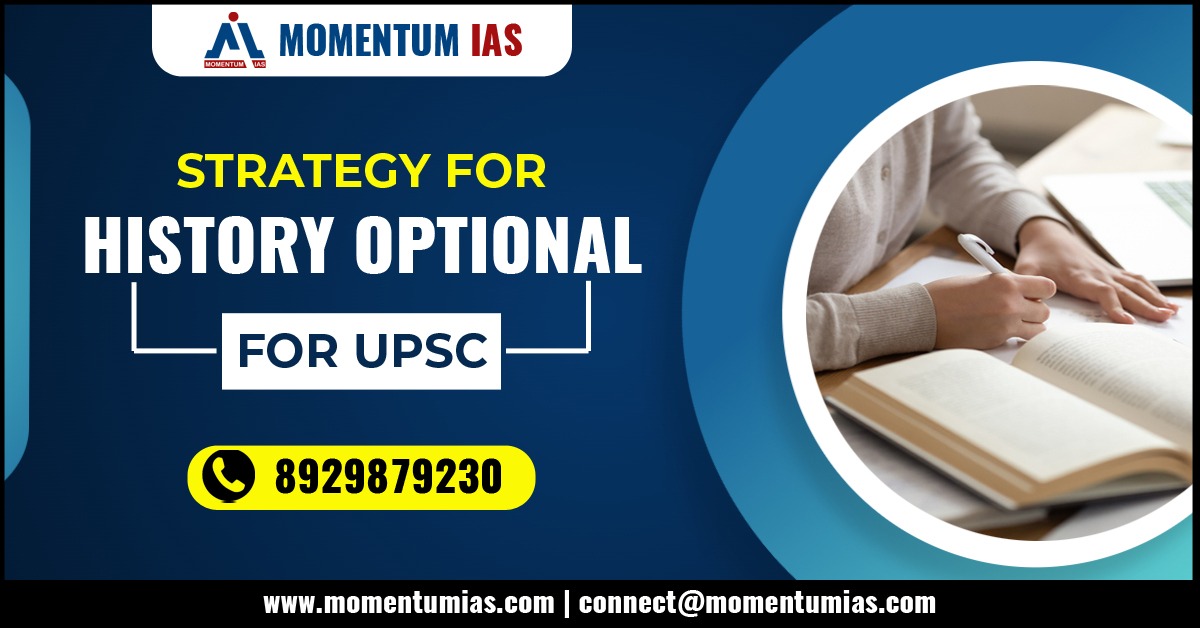UPSC CSE is not a joke that can be cracked by anyone and the crowd will get amazed. It demands sweat and extreme magnitude of hard work to ensure that one can be tagged as “RECOMMENDED”. This exam has always challenged lakhs of students every year and made most of them fail in the very first stage, i.e., Prelims, thousands of them in Mains, and a bit of hundreds in the Personality Test.
The importance of this exam can be seen in this way through the probability of success, which lies between 0.01 to 0.02% most of the time, especially in the last few years. Hence, it becomes important to devise a strategy that can hold your nerves strong and give the edge over your peers and counterparts.
One of the key components of this exam is the Optional subject that you are going to take. And, many have selected History as an Optional Subject, though some of them hold the stigma that it can become pretty challenging if this subject is taken to fight for 500 marks in the CSE Mains.
However, these are all myths and recent evidences easily project the importance of UPSC History Optional subjects to make their name in the final list. But, merely selecting this as your Optional subject will not work as there should be a clear cut strategy formulated for the same to ensure that it has become worthy as well.
The very first Strategy for History Optional that you need to adopt is that you give a substantial amount to the map section that carries 50 marks in the first paper, meaning 20% of the first paper and 10% of the overall Optional subject.
In a nutshell, it carries a good amount of weightage that can let you be on either side of the boundary. Considering that this map section is mainly from the Ancient History part, one needs to read all chapters in a holistic manner and have a thorough look on the map whenever any strikes in front of them. Such things will allow the candidate to get ready for the overall preparation of History Optional for IAS mains subject. Remember that even the Economic Survey of 2018-19 states that there is a need for grey zones in formulating policies instead of working on silos. So, why learn things with distinction when your preparation holds a limited amount of time.
The next big thing on which a candidate needs to focus is that there is nothing that says that if they just read one History optional book for UPSC, they are the master of the subject. No, it is completely wrong thinking that is working behind a candidate’s studies.
History as Optional in UPSC also holds some theories and also demands from individuals that they have a knowledge of different perspectives. At “Momentum IAS, Piyush Kumar Sir” will present you the picture of both pros and cons of Gupta Age having gold coins during their time. As a candidate, one may think that gold coins can always be fruitful, but that is not the case. Standard History Optional books for UPSC are MUST, along with reference books that can consolidate your understanding about the subject. But which books will be right for History Optional? Watch this video.
Another crucial prospect of the UPSC History Optional Strategy is the collaboration of connecting the dots principles with practice. What does this statement mean? In layman terms, a candidate should always read chapters and lessons in a connected manner. Meaning, if they are reading Akbar, especially in the Mughals, they can also keep in mind that concurrently they need to cover Bahmani Sultans, considering Adil Ali Shah and other regional leaders came into the play of empire politics during those times. Concurrent coverage of topics allows you to enhance your answers and expand its horizon that can compel the evaluator to appreciate your content by giving extra marks.
Lastly, constant practice is essential and vital due to which it allows a candidate to get an idea of where they are going wrong in terms of History optional answer writing as at the end of the day, scoring is essential. With Momentum IAS, you get a wide range of History Optional courses that are associated with answer writing to make a candidate ready for the real-time exam ecosystem that does not make them feel exhaustive and grill their minds accordingly as per the latest UPSC History Optional Syllabus. For seeking more information related to the History Optional answer writing program, click on the link.
Once all these strategies for history optional are down the line with which you are constantly adhering without any compromise or lag, you will definitely witness that results are aligning with your expectations. So, all the best with History Optional! Let destiny not decide your fate, but your passion.
READ other useful posts: –
> Pros and Cons of Taking History as Optional in UPSC

